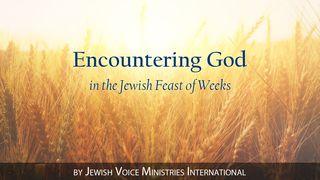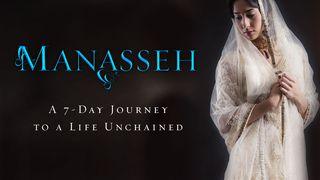Cities Of Refuge: Running Toward GraceSample

Unlike Hebron, Bezer is one of the Cities of Refuge that has yet to be identified archaeologically. We know that it was inside the territory of the tribe of Reuben, which was east of the Jordan River, and likely up on the heights in the vicinity of Heshbon/Mount Nebo. There are a number of sites that have been proposed over the years, but there is no concrete evidence as to Bezer’s precise location.
The root meaning of the word bezer is fortification, to gather, or enclose for the sake of protection (Strong’s #1219). From what we see from the Cities of Refuge that have been identified, they were all high-walled cities (most likely already built and fortified by the Canaanites) and situated on hills. These cities were surrounded by a glacis, which is a steep, plastered-over artificial slope, sometimes surrounded by a deep ditch, that acted as a defense against invaders. One can just imagine the welcome sight of that heavily fortified city on a hill coming into view as the manslayer ran for their life, especially at night when that person would be searching for a precious flicker of light to guide their way to safety!
The walls of these refuge cities did two things. First, they kept the inhabitants locked inside because they were imprisoned as a consequence of their terrible mistake, but they also protected the manslayers from their respective Blood Avengers. Once sheltered inside, a manslayer had a choice: either be grateful for the protection and thrive within the City of Refuge (learning from the Levites as they taught the Torah, perhaps acquiring or practicing a trade, and enjoying the fellowship of others within the city) or resent the imprisonment, push past the boundaries, and be vulnerable to vengeance by their victim’s next of kin.
From the very beginning, Yahweh placed Adam and Eve within the Garden of Eden, and then gave them a law: Do not eat of the Fruit of the Knowledge of Good and Evil (Gen. 2:15-17). This command was given for the express purpose of protection. It was a wall or a boundary that they should not pass. But, of course, when they stepped outside of that boundary they were opened up to the condemnation of the law they broke. Through them sin entered the world, and therefore all men would perish. They were from that point vulnerable to the Enemy, whose entire purpose is to seek and destroy those loved by the Father (Gen. 3).
All of Yahweh’s laws are good. They are perfect and were given to his people for the purpose of protection. They are the standard by which we should evaluate all of our behavior. Like Paul says in 2 Timothy 3:15-17, the law instructs, convicts, and trains us in righteousness so we can do good works in the name of our Father. But because we are incapable of perfect obedience due to our sin nature, we, like the manslayers who were protected by the strong stone walls of the Cities of Refuge, cannot be free from the ultimate consequences of our lawlessness unless our High Priest, our mediator and the Word made flesh, dies in our stead. Thankfully, he did just that!
We must be conscious, however, of the fact that, even though we are Christ-followers, if we willfully step outside the protective boundaries Yahweh has set in place, there are natural, earthly consequences to that sin, including a disruption in the precious relationship between us and our Abba who loves us so much he sent his Son to die for us. Living in freedom does not mean tossing the good laws he wrote with his own finger into the dustbin of ancient history. We are free from the condemnation of breaking those laws and instead given the liberty to obey out of pure love and gratitude for the One who saved us, through the help of the Holy Spirit.
We can either see the walls Yahweh has placed around us as imprisonment and rebel against them, or embrace that protection and spend our time on earth growing, maturing in Christ, and becoming more like him through study and application of his Word.
What a privilege we have to rest in the protection of our Messiah’s unfailing righteousness and the perfect sacrifice of his blood on the cross, and to run the race that is set before us with full assurance that the Holy Spirit will guard and guide us until we are finally home and free of this mortal flesh. Let’s run toward that grace and hide ourselves within the shelter of the Most High and the protection he so freely offers.
Questions to Consider:
What stumbling blocks are you continually tripping over as you race toward the finish line? Spend some time today in silent prayer, asking the Holy Spirit to reveal ways you have rebelled against the protection afforded you by Yahweh’s boundaries. Lay these sins at the feet of the One who died for you and repent so you can run unencumbered toward the grace and hope he offers.
Would you characterize your spiritual growth as flourishing during this period of your life, or have you been floundering? Who are your fellow “Levites” who can help encourage and advise you when you are struggling? If you are feeling lonely or isolated, have you turned to the ultimate Comforter, the Holy Spirit, to fill that need?
Spend some time in silent meditation today on the mercy and grace that you’ve been given. Bask in the protective presence of your Father who loves you and ask him to fill you with his overflowing joy and peace.
About this Plan

Connilyn Cossette, Christy Award finalist and CBA bestselling author, delves into the often-overlooked Cities of Refuge mentioned in both Numbers 35 and Joshua 20. This seven-day study will examine the history and purpose of these Levitical cities in order to discover how these cities are a portrayal of not only the perfect balance between Yahweh’s justice and mercy, but of our Messiah himself.
More
We would like to thank Connilyn Cossette and Bethany House, Publishers for providing this plan. For more information, please visit:
http://www.connilyncossette.com/
Related Plans

Encountering God in the Jewish Feast of Weeks

Reclaiming Our Forgotten Heritage

Isaiah's Legacy

Discover The Jewish Jesus

NO LIMITS, a Kingdom Mind-Set

The Joy and Hope of Christmas for Families

Stubborn Addictions

The Ministry of a Christian Stepmom: A Devotional for Brave Moms

God, Turn My Worry to Worship
